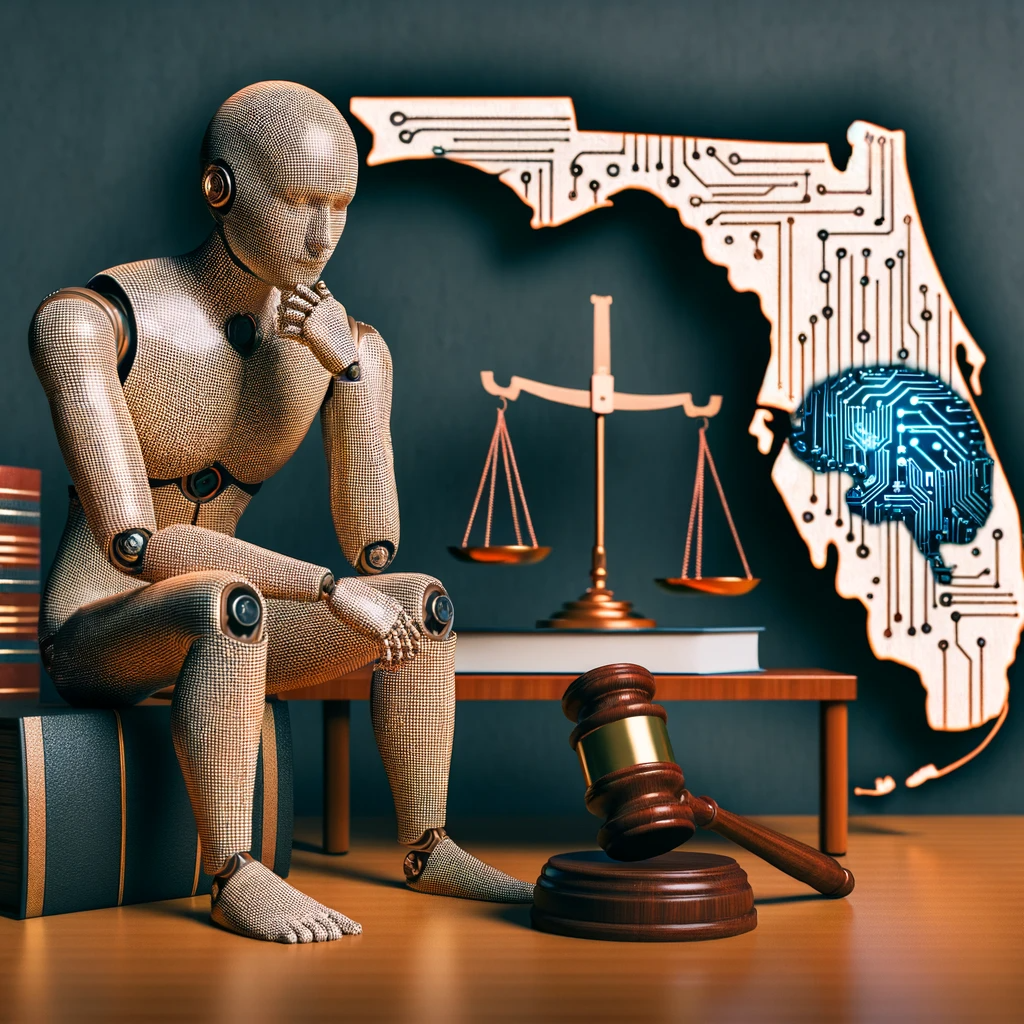The Florida Bar has issued an ethics opinion regarding the use of generative artificial intelligence (AI) in the practice of law. While lawyers are allowed to use generative AI, they must protect client confidentiality, provide accurate and competent services, avoid improper billing practices, and comply with advertising restrictions. Lawyers must research the policies of the AI program they use to ensure client information is protected. They are responsible for their work and must develop policies to ensure the ethical use of generative AI. Generative AI chatbots must comply with advertising restrictions and disclose that they are AI programs. Lawyers should also educate themselves on the risks and benefits of new technology.
The opinion provides guidance on ethical implications and references relevant rules and cases. Generative AI has the potential to improve efficiency but also poses ethical concerns. Lawyers must take precautions to protect client information, oversee the use of generative AI, ensure reasonable fees, and comply with ethics and advertising regulations. Confidentiality of client information is crucial, and lawyers should obtain informed consent before using third-party generative AI programs. They must also make efforts to prevent unauthorized disclosure or access to client information. Lawyers must understand the technology they use to meet their ethical obligations.
The opinion emphasizes the importance of preventing unauthorized access or disclosure of client information and the need for lawyers to understand the technology they are using. The passage also references existing ethics opinions related to cloud computing, electronic storage disposal, remote paralegal services, and metadata, which provide guidance on confidentiality and competence in relation to technological innovations. It highlights the need for lawyers to ensure the security and confidentiality of client information when using generative AI and to take reasonable precautions to avoid inadvertent disclosure. The passage also discusses the oversight and review responsibilities that lawyers have when using generative AI, as well as the limitations on delegating certain tasks to AI that could constitute the practice of law.
Dodonai uses your existing documentation as context to create deposition summaries, create medical record summaries, and search and analyze information in your documents, so you are never relying on the AI to generate new information, eliminating “hallucination” risk.
The passage discusses various ethical considerations for lawyers, particularly in relation to the use of generative AI chatbots, billing practices, and lawyer advertising. It emphasizes the importance of a lawyer’s personal judgment and participation in client interactions, and highlights the need for clear communication with clients regarding fees, costs, and the use of generative AI. The passage also mentions the prohibition of misleading or deceptive advertising by lawyers.
The advertising rules for lawyers in Florida prohibit misleading or manipulative advertisements. Lawyers are not allowed to make comparisons or use statements that characterize their skills or reputation unless they can be objectively verified. They also cannot use a voice or image that gives the impression that the person speaking is a lawyer or employee of the firm, unless there is a clear disclaimer. Lawyers using AI chatbots for advertising must be cautious to ensure they do not provide misleading information or communicate inappropriately. They must inform prospective clients that they are communicating with an AI program and not a lawyer. Lawyers can advertise their use of AI but cannot claim superiority unless it can be objectively verified. Lawyers must guarantee compliance with ethical obligations when using AI technologies, including confidentiality, truthfulness, and compliance with advertising restrictions. They should also continue to develop their competency in using new technologies.






